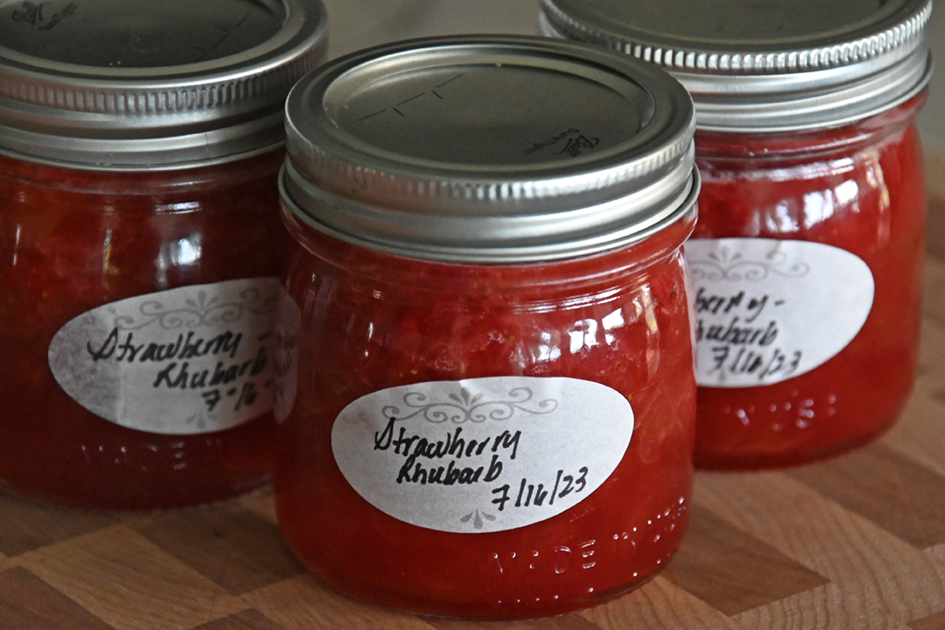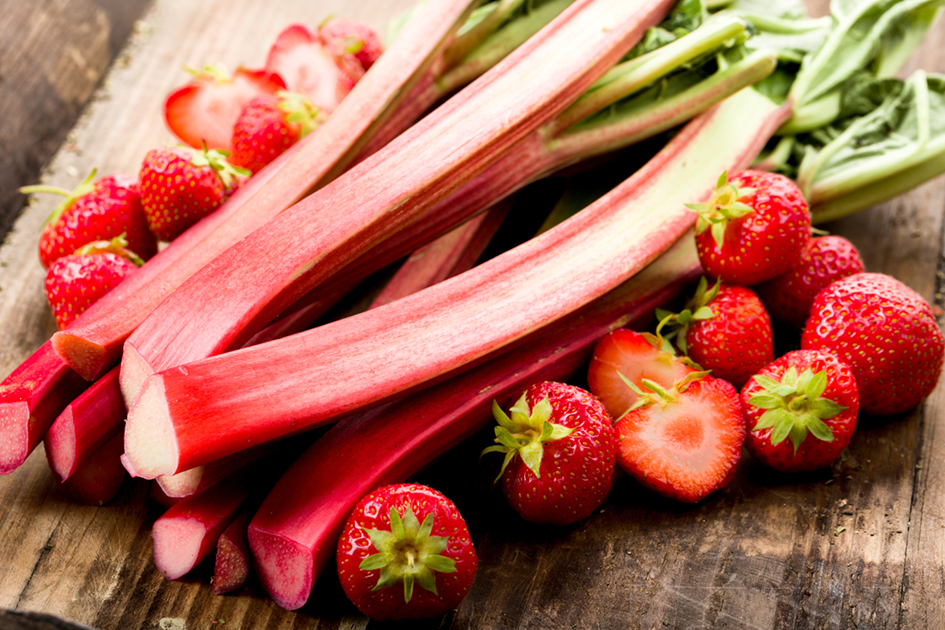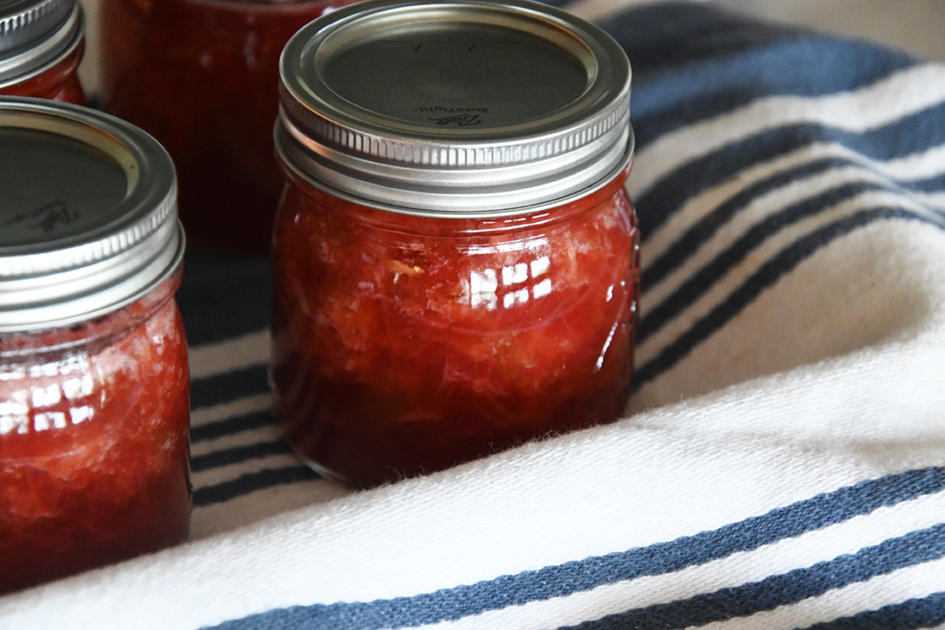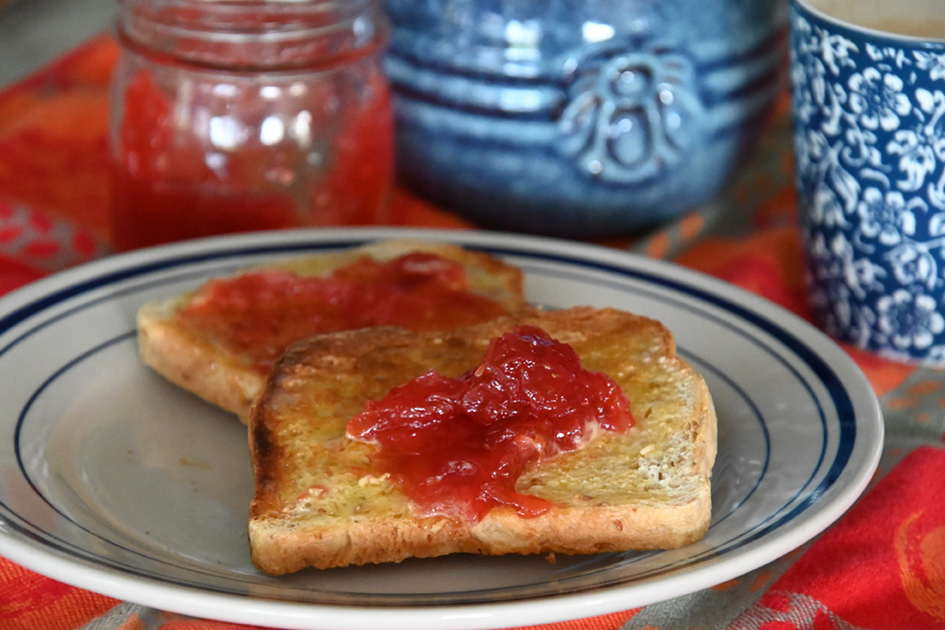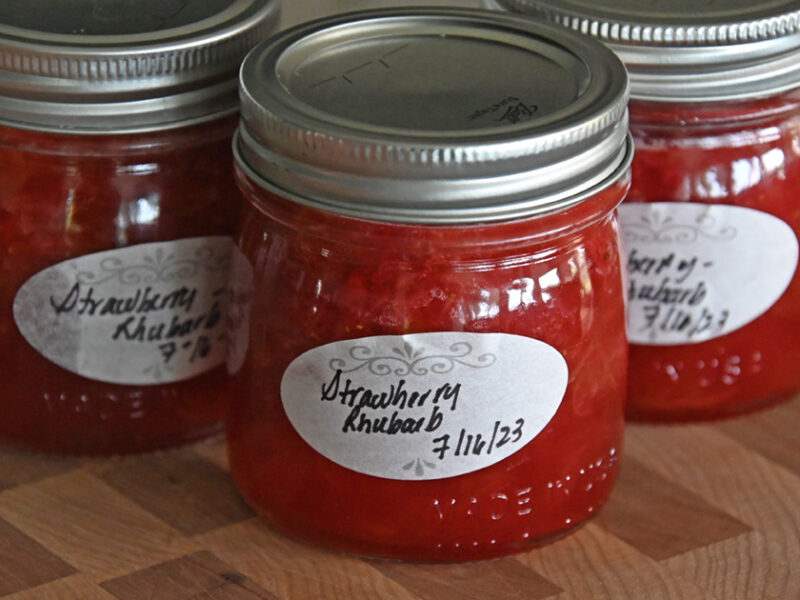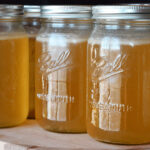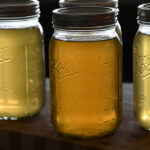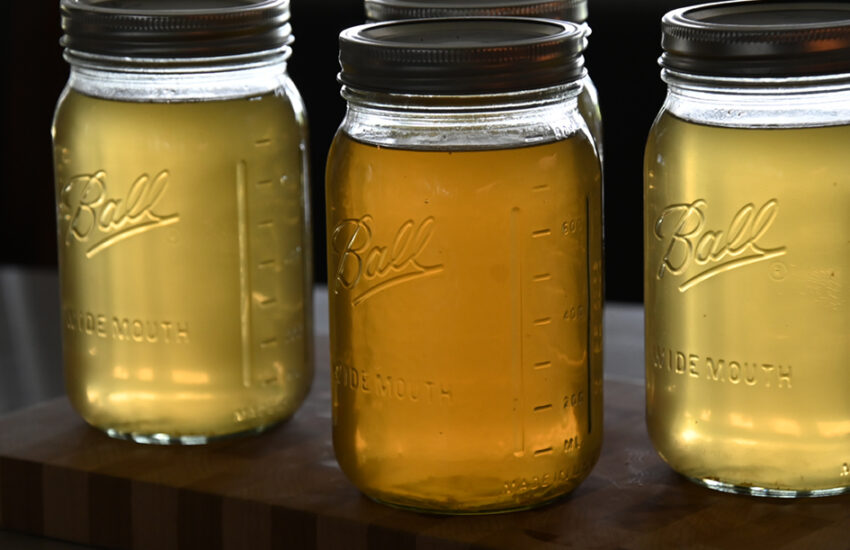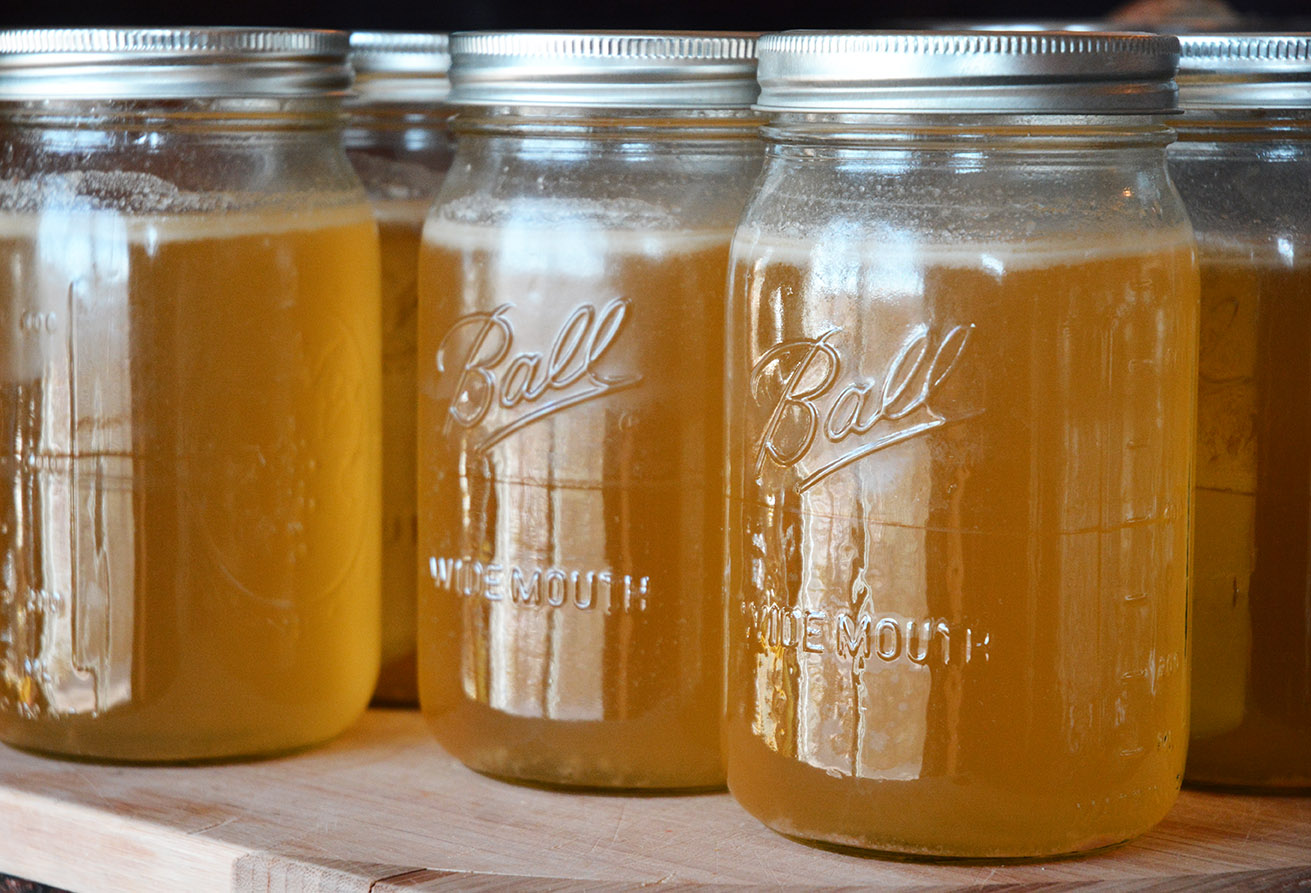Strawberry Rhubarb Preserves
The history of jam dates back thousands of years and can be traced through various civilizations and cultures. The concept of preserving fruits and other foods through cooking and sugaring likely emerged as a way to prolong their shelf life and enjoy them during times when fresh produce was not readily available. Ancient civilizations such as the Mesopotamians, are believed to have used honey to preserve fruits around 2500 BCE. The ancient Egyptians also used honey to make fruit preserves, and the ancient Greeks are thought to have been the first to develop a technique of preserving fruits in honey and using it as a sweetener. The Romans, too, had a penchant for fruit preserves and were known for preserving quinces and cherries.
Today, jam remains a popular and versatile spread enjoyed worldwide. Commercially produced jams are widely available in various flavors and consistencies. The methods and recipes for making jam have evolved over time, but the concept of preserving fruits in sugar remains at its core. Whether it’s spread on toast, used in pastries, or incorporated into savory dishes, jam continues to be a delightful and enduring culinary tradition.
The marriage of strawberry and rhubarb is not only one of my favorites, it is extremely nostalgic for me as my Great Aunt Lu used to make strawberry rhubarb sauce and serve it over vanilla ice cream to me as a child. My husband loves this jam on toasted, buttered French peasant bread.
Ingredients
- 2 cups crushed strawberries
- 2 cups chopped rhubarb (about 4 stalks)
- 1 package powdered pectin (3T)
- ¼ cup freshly squeezed lemon juice
- 5-1/2 cups granulated sugar
Instructions
- Combine strawberries, rhubarb, pectin, and lemon juice in a large saucepan or Dutch oven. Bring to a boil over high heat. Add sugar, stirring until dissolved.
- Return to a rolling boil. Boil hard for 1 minute, stirring constantly. Remove from heat. Skim foam if necessary.
- Ladle hot jam into hot, sterilized jars leaving ¼-inch headspace. Adjust two-piece caps. Process for 10 minutes in a boiling water canner. Makes about 6 half pints.

